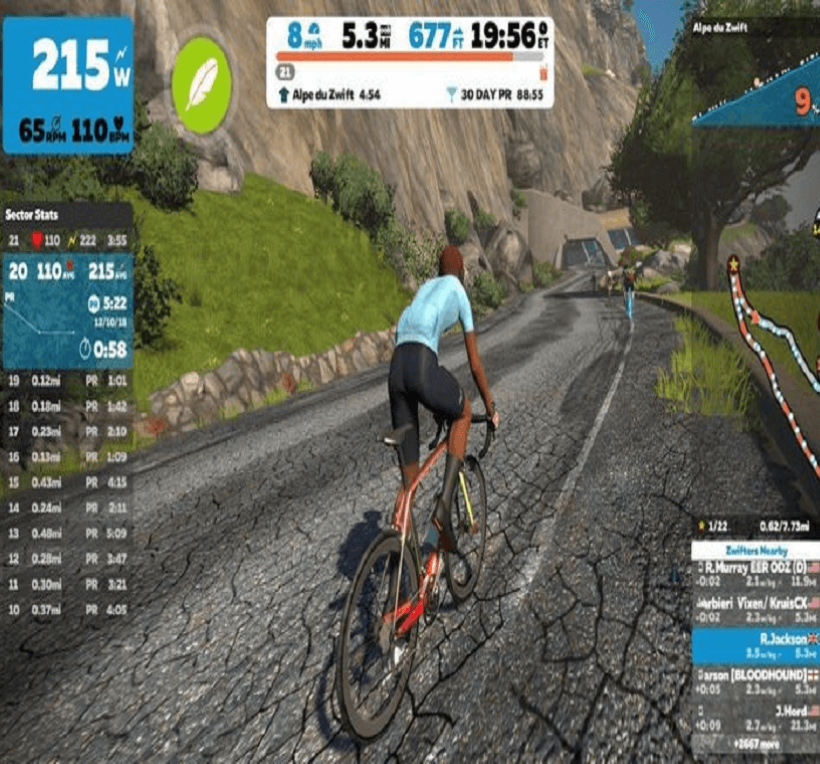

15 reasons Sports Leaders Hesitate to Embrace AI (Yours included)
Est 3 Min Read
15 reasons Sports Leaders Hesitate to Embrace AI (Yours included)
Here’s a brutal fact: AI is already transforming sports, yet most clubs, leagues, and federations are still sitting on the sidelines.
We recently worked with a major sports federation that saw a 10x increase in ticket sales just by implementing AI. That’s not just incremental growth – it’s a massive leap forward.
And yet, their leadership asked us something authentic:
“Why isn’t everyone else doing this?”
It’s a fair question.

On one hand, AI is the most powerful tool in sports today – able to optimize revenue, enhance fan engagement, revolutionize broadcasting, transform coaching, prevent injuries, and improve performance across the board.
On the other, most sports organizations are still hesitating, unsure, or outright resistant to change.
This isn’t a technology issue – AI has never been more accessible or cost-effective. The real barriers are psychological, organizational, and financial.
After two years of working hands-on with sports properties on AI, I’ve identified 15 reasons why sports leaders hesitate – and why waiting is the biggest risk of all.
Because while some are thriving with AI, the rest are falling behind.
Psychological Barriers – The Mindset Holding You Back
1. “If It Ain’t Broke, Why Fix It?” – The Illusion of Stability
Your revenue model – ticket sales, sponsorships, media rights – has worked for years. AI feels like a disruption rather than an opportunity.
Reality Check: Fans are consuming sports differently. Sponsors demand better data. AI-driven teams will outcompete those relying on outdated models.
And it’s not just about business. On the field, AI is transforming coaching, scouting, and injury prevention. Opponents using AI-driven performance analytics and predictive insights will gain an edge. If your club isn’t leveraging AI, you’re already behind.
2. Fear of the Unknown – AI Feels Like a Risk
You didn’t build your career on algorithms – you built it on instinct, relationships, and experience. AI feels like a black box that’s hard to trust.
Reality Check: AI doesn’t replace experience – it enhances it. For coaches, it offers tactical insights. For executives, it unlocks new revenue streams. For broadcasters, it creates hyper-personalized viewing experiences.
3. Overconfidence in Human Judgment – Believing Experience is Enough
Your coaches, scouts, and commercial teams trust their gut over data.
Reality Check: The best organizations don’t replace intuition with AI – they use AI to validate and amplify human expertise.
Would you ignore medical advancements in injury prevention because your physio “just knows” when a player is ready? Then why ignore AI-driven performance insights that can help your team win?
4. Fear of Job Displacement – Internal Pushback From Staff
Your team sees AI as a threat rather than a tool.
Reality Check: AI won’t replace coaches, scouts, or commercial directors. It makes them better. The best clubs integrate AI into decision-making – not to remove the human element, but to supercharge it.

5. Short-Term Thinking – AI Feels Like a Long-Term Play
You’re focused on this season, this revenue cycle, today’s ticket sales.
Reality Check: AI delivers both quick wins and long-term transformation. From automated highlight generation for broadcasters to AI-driven injury risk assessments for coaches, the benefits are immediate.
Organizational Barriers – The Roadblocks Inside Your Club or League
6. Lack of AI Literacy – No One Internally Owns It
Even if you’re open to AI, who in your organization actually understands it?
Reality Check: The smartest clubs and leagues appoint AI champions or work with AI-driven partners.
7. Siloed Teams – Data and AI Aren’t Connected Across Departments
Performance, commercial, and fan engagement teams don’t collaborate.
Reality Check: AI works best when all departments use it together – coaches leveraging performance data, marketing using fan analytics, and sales maximizing AI-driven sponsorship opportunities.
8. No Clear AI Strategy – Just Experimentation Without Impact
Maybe you’ve tested AI, but without clear objectives, nothing has stuck.
Reality Check: AI needs a business case, clear KPIs, and leadership buy-in—not just pilot projects.
9. Your Data Isn’t Ready – Or You Think It Isn’t
Many clubs assume their data isn’t good enough to start.
Reality Check: You don’t need perfect data – just a commitment to building your AI foundation.
10. You Can’t Measure AI’s ROI – So You Don’t Prioritize It
You’re unsure how AI delivers revenue growth.
Reality Check: Smart leaders start with measurable AI wins – personalized ticketing, AI-driven sponsorship sales, automated scouting reports, and injury prevention analytics.
Financial Barriers – The Misconceptions About Cost
11. AI Feels Expensive – But That’s a Myth
You assume AI requires a massive upfront investment.
Reality Check: The best AI solutions today are affordable SaaS models, requiring minimal upfront costs.
12. Uncertainty About ROI – You Don’t Want to Gamble on AI
You want proof before committing.
Reality Check: The top AI-driven sports organizations are already seeing double-digit revenue growth from AI-powered ticketing, sponsorships, and fan engagement.
Industry-Specific Barriers – The Unique Challenges in Sports
13. Tradition and Heritage – “This is How We’ve Always Done It”
Many decision-makers see AI as a threat to the sport’s traditions.
Reality Check: The best teams are merging tradition with innovation—enhancing the fan experience and improving decision-making.
14. Regulatory and Ethical Concerns – Fear of Data and Privacy Risks
GDPR compliance, AI bias, biometric data… It feels like a legal minefield.
Reality Check: There are already proven, compliant AI solutions that handle these challenges responsibly.
15. You’re Waiting for Others to Move First
You’re watching what bigger clubs and leagues do before you commit.
Reality Check: The first movers in AI are setting the standard. If you wait too long, you’ll be following, not leading.
The Harsh Truth About Standing Still
Let’s be brutally honest: the AI revolution in sports isn’t waiting for anyone.
Every season that goes by, more teams are unlocking new revenue streams, optimizing operations, and making better decisions – not because they’re luckier or smarter, but because they’re using AI.
Meanwhile, those who hesitate? They’re losing fans, sponsorship value, and competitive edge. And the scariest part? They won’t even realize how far behind they are until it’s too late.
So the real question isn’t whether AI works. The real question is: how much longer can you afford to wait?
On another note, we’re hosting an exclusive event for the first time—giving you a front-row seat to AI-driven solutions that are already delivering 10x results. If you’d like an invite, take just two minutes to share your details here.
With love for Sports and Innovation
AR




Comments